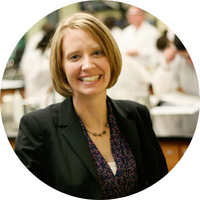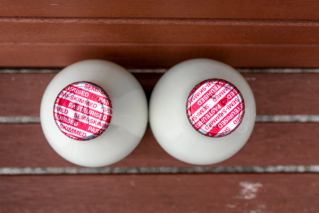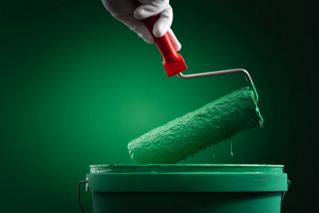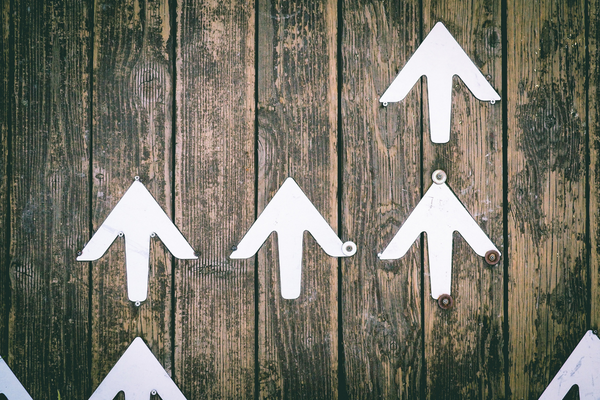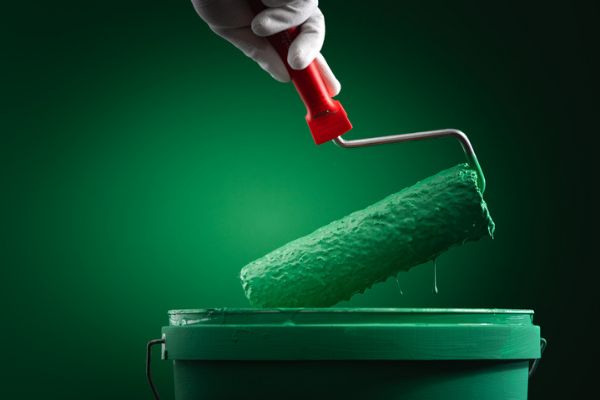
In the dozen years or so after receiving your Ph.D., you have encountered lots of career turbulence. In that time, you responded with a great deal of perseverance and adaptability. Where did you learn those traits?
In graduate school, I had the privilege of working with a wonderful mentor (Dr. Kathy O’Brien) through my volunteer work with the ACS Rochester local section. One thing she taught me is to remain flexible and seek out challenges. When she started to feel too comfortable with a project at the large company she worked for, she would seek another opportunity within the company to stay challenged and keep learning. Her attitude and work ethic resonated with me. Sometimes I feel like a career nomad because I prefer seeking new opportunities over ease and stability.
Getting laid off is not a walk in the park and it’s easy to view being laid off as having a door close. However, I prefer to view job loss as having a door open. Searching for a job is not fun, which is why I didn’t search for one while I was unhappily working in industry at a job that paid well and had great hours. Getting laid off was the kick in the pants I needed to find something better. After industry, I made the switch to higher ed, which I never would have predicted doing and now I can’t imagine it being any other way.
I’m guessing your actual career arc since completing your undergrad in 2003 at Canisius College in Buffalo has been nothing like what you imagined it would be. Is that right? Based on your experience, what advice do you have for those in the first 10-15 years of their careers?
Yes, you are correct! It’s extremely hard to predict the future, so my advice is that it’s important to set goals but also remain flexible. I like to say that if you can describe your dream job, then you are more likely to be successful in landing it because you know what you need to do to make yourself the most successful candidate. Sometimes it takes a lot of soul searching to figure out what your goal is. It may seem like others know exactly what they want to do, but know that you are not alone and others feel that way sometimes too.
Know that your personal life may need to take priority over your career goal, or you may learn about new job opportunities that you had never thought of. If you ask experienced scientists about their career path after graduation, I think most (if not all) would tell you that it wasn’t a direct path from point A to B, but that it was more like the path in a packed chromatography column. Setting goals and having a plan is important, but please remember that (as in research) things often don’t turn out as expected.
Also, newly graduated students often set unrealistic expectations about their compensation and job responsibilities/title for their first job. Younger job seekers are often looking for high-level positions or non-traditional careers, and I think you have to let these opportunities open up after you get experience and prove yourself as a valuable employee. Most graduates start at the bottom and works their way up, which isn’t necessarily a bad thing. It’s important to get experience in the trenches to help you later down the line in your career. My current position as a digital faculty consultant with McGraw-Hill came about because I have years of experience using their products in my classroom.
How did you stay positive after losing positions at an industry lab, and later at Valparaiso, given that neither job separation was related to your performance?
I’d love to quote Forrest Gump when he helps an aging hippie come up with his next great bumper sticker slogan: “It happens.” Things happen that are beyond our control, and you can choose to be the victim or choose to move forward and seize the next great opportunity. “That’s all I have to say about that.”
As an ACS Career Consultant, you recently presented on the topic of LinkedIn. What’s the one thing most people could do to make more effective use of LinkedIn?
First, it’s amazing how much information is available on LinkedIn. Prior to LinkedIn, job seekers would have to go to a career center or library to access information that is now is available online (this is after they would walk uphill to school both ways). Networking is important for building a successful and rewarding career and if you find networking difficult, simply think of it as “career research.” That is, you are collecting valuable data to find your next great position!
Again, if you ask experienced scientists about how they landed jobs later in their career, most mention networking. There are two types of positions in the marketplace: posted (displayed on job search websites or directly on the company website) and hidden (no formal posting). Having a strong network will open up positions for job seekers because your network will either create a job for you based on your skill set or alert you when a position opens that may be perfect for you. All the positions I have had during my career have been hidden. At the Anaheim ACS meeting in 2011, I was going to get laid off as soon as I returned from the meeting and I happened to connect with the daughter of the Valparaiso University chemistry department chair, who let me know that they were looking to hire a physical chemist. I reached out about the tenure track position and he let me know that they filled it (months ago), but then he reached out a couple months later to let me know that they had created a job for me.
LinkedIn wasn’t involved in my story because LinkedIn wasn’t commonly used in 2011. Now you can use LinkedIn easily to find people who went to the same schools as you and, importantly, who are in your network and working at companies where you want to work. I suggest before applying to a posted position to reach out to people in your network who work at the company to find out more about the organization and the position. After being laid off, I considered all types of careers. I started volunteering at a science museum because I thought it would be a great place to work. By volunteering and expanding my network at the museum, I learned that the museum doesn’t hire chemists unless they have improv experience! What a useful nugget of information--it saved me from applying to positions that I would not get unless I decided to take classes at Second City!
If you’re new to LinkedIn, at a bare minimum replace the standard header and add your headshot to your profile before you start forming connections!
If you think about your two years employed in industry in a small environmental lab, what sticks out most in your mind about that experience?
Students and those seeking career advice often want to know what it’s like to work in industry and that’s a difficult question for one person to answer. Much like there are many types of higher education institutes and positions within those organizations, there are a range of companies and positions in industry. The startup lab I worked for was part of a bigger established company, which was headquartered in Washington, DC. Our lab space was housed in a university-affiliated incubator, where space and resources were provided to help small businesses develop an idea to take to market. I was one of only five employees, so I had to be a jack-of-all-trades. My technical knowledge was important to conduct research, but my soft skills were equally as important. I had to report verbally to my supervisor and write stakeholder reports for non-scientists, so my communication skills were key. Oftentimes, problems would arise that I’d have to solve. I joke that our lab was centrally located between many great universities, but we weren’t close to any. I used my networking skills to build a database of nearby equipment to borrow because it was too expensive to purchase ourselves.
How will you know when you have found your ‘ideal’ position?
When I’m baking macarons and getting paid! In all seriousness, I don’t know that I’ll ever land my ideal position because my ideal position changes as my values and interests, skills, and the job market change. As a very young student, I thought my ideal position was one that made tons of money (or owning an amusement park or being a Ben & Jerry’s flavor guru). My ideal position morphed as I matured and drastically changed once I had my twin boys. Money is important to pay the bills, but a job that allows me to have a lop-sided balance favoring my personal life is most important to me at the moment. I have my current position working as a digital faculty consultant for McGraw-Hill is ideal for me now. I work on a range of projects (e.g., supporting instructors all over the country, making marketing materials, training the sales team) that keep me challenged, while allowing me to dictate my own schedule. My young children will grow up and I’m sure that my ideal position will change as they get older.
What is something higher education can do to better prepare students for employment in industry?
Our higher education system focuses on teaching students the knowledge and skills needed in the workplace but teaching them how to present that knowledge to land their first job is lacking. Students routinely have to attend weekly colloquia and seminars that focus on the work of visiting scientists. Including career-related presentations or workshops greatly benefits students. As the weekly chemistry colloquia organizer at Valparaiso University, I used seminar time to teach students about the power of networking, how to create documents for an application portfolio, and how to apply to graduate school and internships. I requested that visiting speakers spend some time talking about their career path. One year, I invited three ACS Career Consultants to the university for a day to offer personalized résumé reviews to all students in my chemistry colloquium course. Three years later, a senior approached me who had her résumé reviewed during this event to tell me how much she appreciated the event as she was applying for optical graduate schools.
I find it interesting that a majority of young graduates follow the industry career path, yet (in my experience) they have few role models in higher education who have experience in industry themselves. I think it’s important for professors to connect students to resources that will help them succeed in industry, such as promoting industry internships, encouraging students to network with local chemical companies, or simply referring students to the many resources offered by ACS (e.g., personal career consulting, ChemIDP, career-related workshops).
Having volunteered for both ACS and the Materials Research Society (MRS), who’s the better dining companion, a chemist or a materials researcher? Why?
During dinners with other scientists, I prefer to talk about topics besides straight science. I do love science but dining to me is a chance to form a connection to someone new or deepen an existing connection. I am a firm believer that everyone has an interesting story to tell, and I truly enjoy finding out what people are passionate about outside of the lab or how they use science in their personal lives. I’ve met an opera singer, a referee, and a rock climber, and I have discovered that former ACS President Bill Carroll has written books about the musical industry using data analysis skills he acquired while working in the chemical industry!
Currently, though, I’d like to dine with someone who can provide insights into baking better macarons! Whether it’s a chemist trying to help me build a more stable meringue or a materials researcher talking about the importance of almond flour particle size, both would be welcomed and interesting conversations!
In reflecting more about this question, I think I would have to dine with both of them based on the “more the merrier” inclusive upbringing that was instilled in me by my parents.
If you could select a total of three scientists/business leaders – deceased or alive – to support you on the project of your choice, what project would you pick, and who would you put on the team?
***don’t for this problem because it makes me feel uncomfortable because it’s outside of my expertise. I would choose the plastics problem because plastics have a place in our life, but we need to figure out how to make sure they don’t pollute our environment. Unfortunately, I don’t think I’m comfortable putting together a team to solve this problem because I don’t do this research.
Your bio cites a passion for baking French macarons. For those similarly inclined, what advice can you share with us?
I have had a passion for being in the kitchen since I was a young girl. During the pandemic I had an opportunity to take on online macaron class. Students in the class were encouraged to look over the recipe and have ingredients ready for the 2-hour session, but I went above and beyond and had already attempted making them once so I could pay attention to the instructor’s technique (yes, I am a type A personality).
Baking macarons is a lot like my graduate research growing carbon nanotubes because both macarons and carbon nanotubes can be temperamental, and there’s a bit of an art to it. The great thing about macarons is that whether they look like the picture on the recipe or are a Pinterest fail, they will taste delicious! There is a lot of chemistry that goes into making macarons, so chemists already have a leg up. Humidity, oven temperature, the presence of fat, and many other factors play a role in making these delicious cookies successfully. As with scientific research, I keep a journal to keep track of each batch I make to make tweaks for the next time. The most important thing is to find a recipe that works for you and enjoy your time in the kitchen.
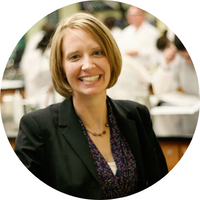
Katie graduated from the University of Rochester with her Ph.D. in physical chemistry. She relocated outside of Chicago to work in the industry as a Research Scientist for a small environmental lab that performed government contract work. Katie has also worked as a Lecturer at Valparaiso and is currently serving as a Digital Faculty Consultant for McGraw-Hill and writing children's books with her colleague, and perfecting her French macaron recipe (and creating new flavor combinations). In her free time, Katie enjoys running, volunteering for the ACS, traveling, and spending time with her husband, twin boys, and two golden retrievers.
This article has been edited for length and clarity. The opinions expressed in this article are the author's own and do not necessarily reflect the view of their employer or the American Chemical Society.

